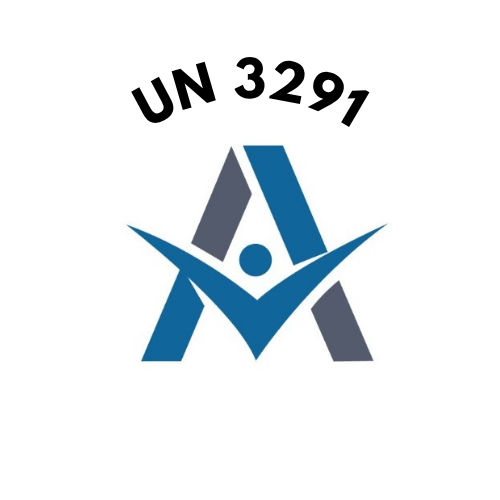UN 3291

UN 3291: Hazardous Medical Waste Transport Compliance for Saudi Arabia and Oman
UN 3291 is the critical international standard governing the packaging, labeling, and safe carriage of hazardous medical and clinical waste. For organizations in Saudi Arabia and Oman, compliance is essential for meeting stringent national regulations from Saudi Arabia's General Authority of Food and Drug (SFDA) and Oman's Ministry of Health (MOH), supporting public health objectives under Saudi Vision 2030 and Oman's Health Vision 2050.
Core Requirements for Gulf Healthcare Providers:
-
Packaging Integrity: Utilize SFDA and Oman MOH-approved containers that prevent leakage and withstand Gulf climate conditions.
-
Labeling Standards: Apply hazard symbols and information in both Arabic and English as per GCC Unified Medical Waste Guidelines.
-
Documentation Control: Maintain waste manifests compliant with Saudi National Waste Management Center and Oman MOH tracking systems.
-
Carrier Compliance: Ensure transport partners are licensed by the Saudi Transport General Authority and Oman's Ministry of Transport, Communications and Information Technology.
Strategic Implementation Areas:
-
Hospital Operations: Manage infectious waste streams from major facilities like King Faisal Specialist Hospital and Royal Hospital Muscat.
-
Pharmaceutical Sector: Safely transport expired or contaminated medications from distributors across GCC markets.
-
Laboratory Networks: Handle biohazardous materials from diagnostic labs under SFDA and Oman MOH oversight.
-
Pandemic Preparedness: Ensure scalable, safe disposal protocols for large-scale medical waste during health crises.
Certification & Compliance Benefits:
-
Regulatory Adherence: Full compliance with Saudi Waste Management Law and Oman's Ministerial Decision 246/2016 on Medical Waste.
-
Enhanced Safety: Significantly reduce contamination risks for healthcare workers and the public.
-
Environmental Protection: Prevent soil and water pollution in alignment with Saudi Green Initiative and Oman's Environmental Goals.
-
Operational Resilience: Avoid legal penalties and operational shutdowns from regulatory bodies.
-
Stakeholder Confidence: Demonstrate commitment to international best practices for investors and partners.
KSA-Oman Implementation Priorities:
-
National Vision Integration: Align waste logistics with Saudi Vision 2030's quality of life objectives and Oman's sustainability targets.
-
Infrastructure Development: Support waste management systems for giga-projects like NEOM and Oman's Duqm Special Economic Zone.
-
Transportation Security: Implement GPS tracking and chain-of-custody protocols for cross-border transport within the GCC.
-
Emergency Response: Develop contingency plans for spill management and incident reporting to local authorities.
Sector Applications:
-
Public Health: Ministry of Health facilities, vaccination centers, and public health campaigns.
-
Private Healthcare: Major hospital groups like Saudi German Health and Burjeel Hospitals in Oman.
-
Research & Development: Pharmaceutical research centers and biotech labs.
-
Industrial Clinics: Medical waste from on-site facilities at Aramco and PDO operations.
ANS Compliance Assurance Process:
-
Gap Analysis: Assess current practices against SFDA Medical Waste Guidelines and Oman MOH standards.
-
Compliance Audit: Conducted by specialists with expertise in GCC environmental and health regulations.
-
Surveillance: Ongoing monitoring and reviews to adapt to evolving national regulatory frameworks.
